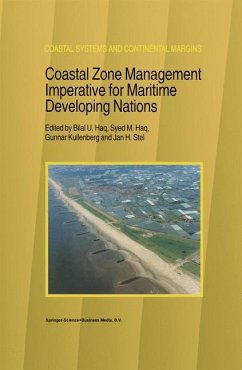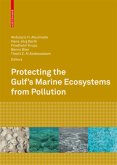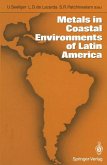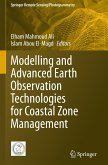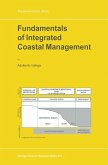Anthropogenic transformation of the coastal zone continues at a steady pace, especially in the developing maritime countries, where coastal resources are often crucial to national economies. However, exploitation of these resources is often indiscriminate, ill planned, or carried out without adequate scientific knowledge. This leads to rapid resource depletion, and often irreversible environmental degradation. The 1992 Rio de Janeiro UN Conference on Environment and Development recognized the expediency of an integrated and sustainable use of all coastal resources, functions and services grounded on sound scientific data.
The present volume is based on the 1994 international workshop Integrated Coastal Zone Management, and brings together contributions by leading specialists both on basic concepts and on applications of coastal management. The work is divided into six parts, dealing with the conceptual framework of ICZM; regional and global aspects of coastal management; environmental assessment in ICZM; capacity building and technology transfer; monitoring and environmental analysis; and case studies and status of ICZM plans. The book also incorporates an interactive ICZM planning module, COSMO, which can be of use in designing a management plan for a coast. Attention is also given to long-term environmental effects of present-day actions. It is hoped that COSMO will prove an additional learning tool for ICZM practitioners and enhance the value of the book.
This work is intended to give a broad coverage of conceptual and technical aspects of ICZM, and will be of use to operational executives as well as students of ICZM, environmental economists, policy-makers and senior managers in the international development agencies and governmental and non-governmental organizations. It can be recommended as a textbook and as a reference work.
The present volume is based on the 1994 international workshop Integrated Coastal Zone Management, and brings together contributions by leading specialists both on basic concepts and on applications of coastal management. The work is divided into six parts, dealing with the conceptual framework of ICZM; regional and global aspects of coastal management; environmental assessment in ICZM; capacity building and technology transfer; monitoring and environmental analysis; and case studies and status of ICZM plans. The book also incorporates an interactive ICZM planning module, COSMO, which can be of use in designing a management plan for a coast. Attention is also given to long-term environmental effects of present-day actions. It is hoped that COSMO will prove an additional learning tool for ICZM practitioners and enhance the value of the book.
This work is intended to give a broad coverage of conceptual and technical aspects of ICZM, and will be of use to operational executives as well as students of ICZM, environmental economists, policy-makers and senior managers in the international development agencies and governmental and non-governmental organizations. It can be recommended as a textbook and as a reference work.
`The book will be of interest to academics and practitioners of coastal zone management world-wide.'
Journal of Environmental Planning and Management, 41:5, (1998)
Journal of Environmental Planning and Management, 41:5, (1998)
`The book will be of interest to academics and practitioners of coastal zone management world-wide.' Journal of Environmental Planning and Management, 41:5, (1998)

